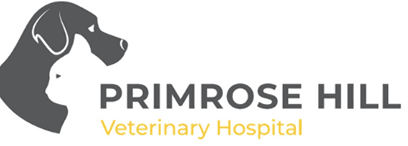Inquisitive dogs and curious cats might enjoy investigating around the house, but the last thing you want them to do is harm themselves on household items.
As we step into Spring and many of us start deep cleaning, you should familiarise yourself with some of the many cleaning products that can be hazardous to your pets.
Below is a list of some household items to be aware of when you have them in your house or use around your pet. The most common hazardous cleaning products include bleach; oven cleaners; laundry detergents; drain cleaners; floor cleaners; and toilet cleaners.
Household cleaning products and chemicals
Household cleaning products and chemicals can be dangerous for pets if not used properly. It is important to keep all cleaning products out of reach of pets. We advise that you read the labels of any cleaning products to ensure they are safe for pets. Some cleaning products contain chemicals that can be toxic to pets if ingested or inhaled. Ensure adequate ventilation to avoid potential harm to pets when using any cleaning product. Additionally, clean up any spills or residues quickly and thoroughly to avoid any potential problems. Always store cleaning products in their original containers and in a secure location away from pets.
Bleach
Bleach can be extremely hazardous for pets if ingested. It can cause vomiting, difficulty breathing, and severe mouth, throat, and stomach burns. If your pet is exposed to bleach, it is important to seek veterinary attention immediately. In addition, keeping any products containing bleach out of your pet's reach is important, as even small amounts can cause serious harm.
Fabric softener sheets
The fragrances, chemicals and other ingredients in fabric softener sheets can harm pets if they come into contact with them. The sheets may cause vomiting, diarrhoea, and other gastrointestinal issues if ingested. Additionally, the chemicals in the sheets can cause skin irritation, respiratory problems and even poisoning. We advise keeping fabric softener sheets away from pets and using alternatives like pet-safe laundry detergents and natural fabric softeners to keep your pet healthy and safe.
Air freshener
Air fresheners can potentially be dangerous for pets. Some air fresheners contain chemicals that can cause irritation to a pet's skin, eyes, nose and throat and can also cause lung and respiratory problems. That said, if you're going to use an air freshener in a home with pets, it's a good idea to use a natural, non-toxic one.
Electrical wires
Electrical wires can pose a potential hazard for our pets. Pets can easily chew through or damage electrical cords, which can cause serious injury or death due to electrocution. To help keep your pet safe, ensure all exposed electric wires are out of reach and secure. You can also use cord covers to protect wires and ensure your pets can't access them.
Batteries
When using or disposing of batteries, ensure they are in a secure location, such as a locked container, away from your pet's reach. Also, properly dispose of used batteries, which can pose a choking hazard or chemical poisoning risk. When buying products that contain batteries, ensure they are securely sealed, and the battery compartment is inaccessible.
Toys with small parts
Small toys can present a choking hazard if swallowed, as they can become lodged in the animal's throat or gastrointestinal tract. Additionally, small toys can contain parts that can be broken off and ingested, which can cause serious digestive issues. Avoid giving your pet small parts that can be chewed off, such as plastic eyes or noses, and choose toys made with durable materials that cannot be easily broken. It is also important to check the toys regularly for signs of wear and tear and replace them if they become damaged. Lastly, never leave small toys where your pet can access them unsupervised.
Plastic bags
Plastic bags can be extremely hazardous for pets. They can become entangled in the plastic and suffocate or choke, ingest pieces of the plastic and become wrapped in it and unable to move. If you have bags of any kind lying around, keep them away from your pets.
Plants
It's important to be aware of the potential hazards that spring flowers can pose to our pets. While we may find the bright colours and sweet scents of spring flowers beautiful, some of these blooms can be dangerous. The most common spring flower dangers to watch out for include lilies, daffodils, tulips and hyacinths. Lilies, in particular, can be toxic for cats and cause kidney failure. Daffodils contain a toxin that can cause severe vomiting and diarrhoea and can even lead to death if ingested. Tulips and hyacinths can cause gastrointestinal issues, including drooling and vomiting. If you suspect your pet has eaten any of these flowers, seek veterinary attention immediately.
Blind cords
To ensure the safety of your pet, it is important to keep blind and curtain cords tied up and out of reach. If possible, tie them in a high knot, so they are completely out of harm's way; this will help prevent any accidental strangulation.
Candles
Pets can be at risk of injury or illness if they come into contact with candles. The most common risks of having candles around pets include wax burns, accidental ingestion, heat burns, and fire hazards. It is important to keep candles out of pets' reach and never leave a lit candle unattended.
We hope you have a happy and healthy spring. Please get in touch with a member of our team if you have any questions or concerns about your pet.




Follow Us: